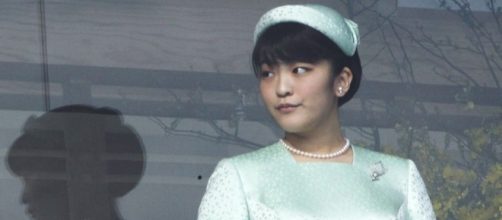Media in Japan are reporting that Princess Mako will be getting married to a commoner. Since she is getting married, this means that she will be kicked out of the royal family. This will mark the eighth time a female member of the Japanese Imperial Family will have become a commoner since 1947. It has also raised debate in the country over their succession laws, lack of male offspring, and the ever-shrinking royal family.
Who is Princess Mako, and who is she marrying?
Princess Mako is the 25-year-old eldest granddaughter of Emperor Akihito. Princess Mako's unofficial fiance is Kei Komuro, who works at a law office in Tokyo.
The two met at an International Christian University in Tokyo, where Mako got her Bachelor's degree in Art and Cultural Heritage. After this, Mako went to get her Masters degree in Museum Studies at the University of Leicester in the United Kingdom.
Since then, she has worked as a researcher at a museum in Japan. Clearly, though, Mako did not forget about Komuro when she was getting her Masters degree. The couple is expected to be officially engaged at some point this summer, with the wedding expected to take place next year.
Japan's succession laws
Since 1947, Japan has had the Imperial Household Law, where it defined succession to the throne under agnatic primogeniture. This means that only legitimate male descendants in the male line of Emperor Taisho (1879-1926) can inherit the throne.
This also means that women cannot inherit the throne and members of the imperial family cannot adopt children.
Since 1960, Japan's imperial family has only had three men born in the line of succession to the throne. This mirrors the country's overall low birth rate. Compounding the issue of the shrinking imperial family is that women are kicked out when they get married, as Princess Mako will be. This has once again led to debate over revising succession laws and/or allowing women to stay in the imperial family after marriage.
Japan's succession issue
Yesterday, Japan's cabinet approved a bill that is the first step in allowing Emperor Akihito to step down. The bill will go to parliament next, where they hope to pass it before the end of June.
The 83-year-old emperor has had the throne since 1989, but has gone through prostate cancer and heart surgery in recent years. Last year, Emperor Akihito made candid public remarks about how his age and health could prevent him from fulfilling his duties.
There have been no plans as far as when the abdication would take place, though many speculate that it could happen late next year. A Japanese Emperor has not abdicated the throne since Emperor Kokaku (1771-1840) in 1817. This current bill is only a one-off legislation to allow Emperor Akihito to step down.
As of now there are only four people in the line of succession for the Chrysanthemum Throne. Emperor Akihito's eldest son, Crown Prince Naruhito (57), is the heir to the throne. His second son, Prince Akishino (51) is next in line. Akishino's son, Prince Hisahito (10) is third in line. The last person in line for the throne is Akihito's younger brother, Prince Hitachi (81).


